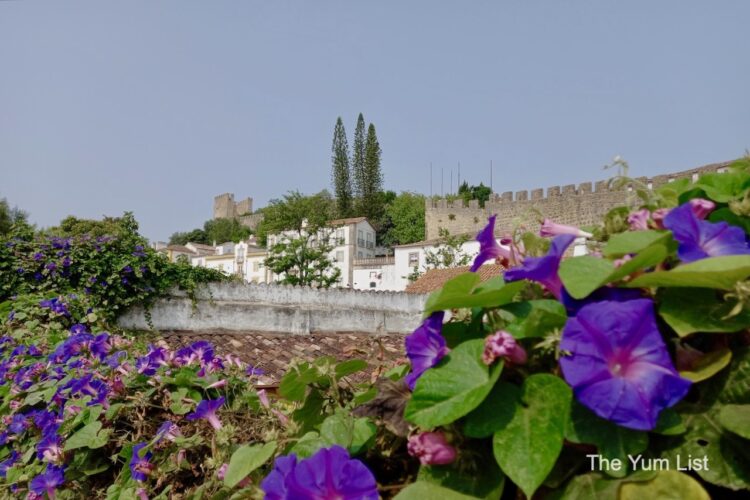Óbidos – Medieval Village, Portugal
Monica Tindall
Óbidos is a medieval village in Portugal, about 80 kilometres north of Lisbon. With its well-preserved historic charm and ancient city walls, Óbidos offers visitors a glimpse into the past. This quaint village, which dates back to the Roman era, has been a vital stronghold throughout history, witnessing the reign of various civilisations. While the town has undergone some restorations and adaptations, its core medieval character remains intact, and a walking tour with West Side Stories makes the history come alive.
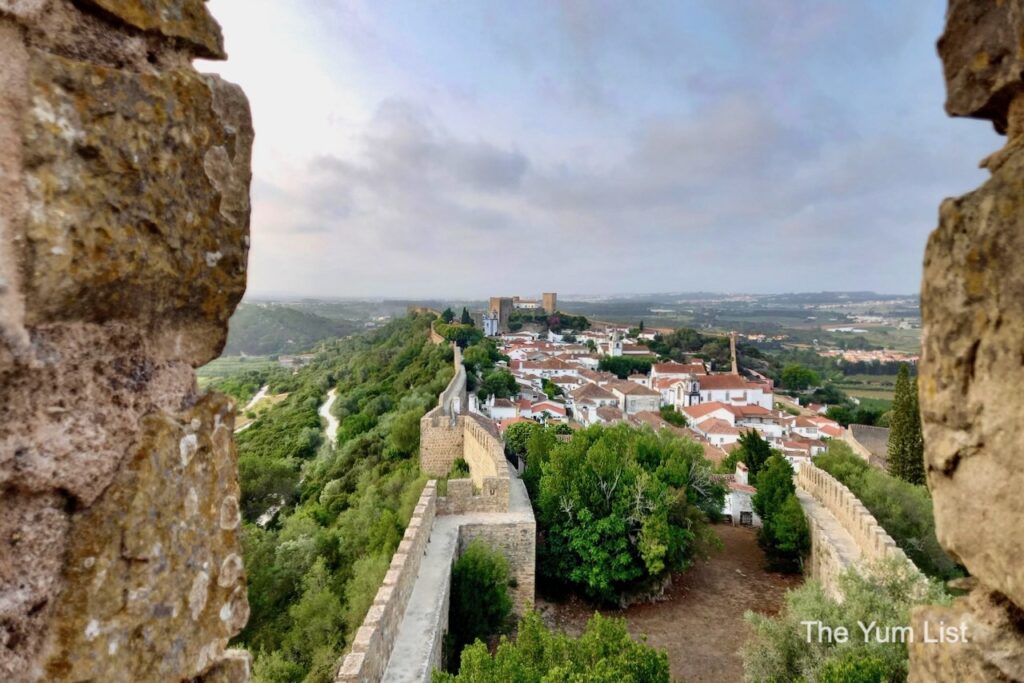

Our guide, Eduardo, collects us from our hotel, The Literary Man, and we set off on foot to discover the village. As we approach the town’s gates, we learn that the origins of Óbidos can be traced back to the Roman period, as archaeological findings suggest the presence of a settlement during that time. The village gained significance during the Moorish occupation of the Iberian Peninsula, serving as a strategic stronghold. In the 12th century, Óbidos was conquered by the first King of Portugal, Afonso Henriques. Later, at the end of the 13th century, it became a gift to Queen Santa Isabel, from King Dinis when they got married. This royal connection contributed to the town’s subsequent development and prosperity.
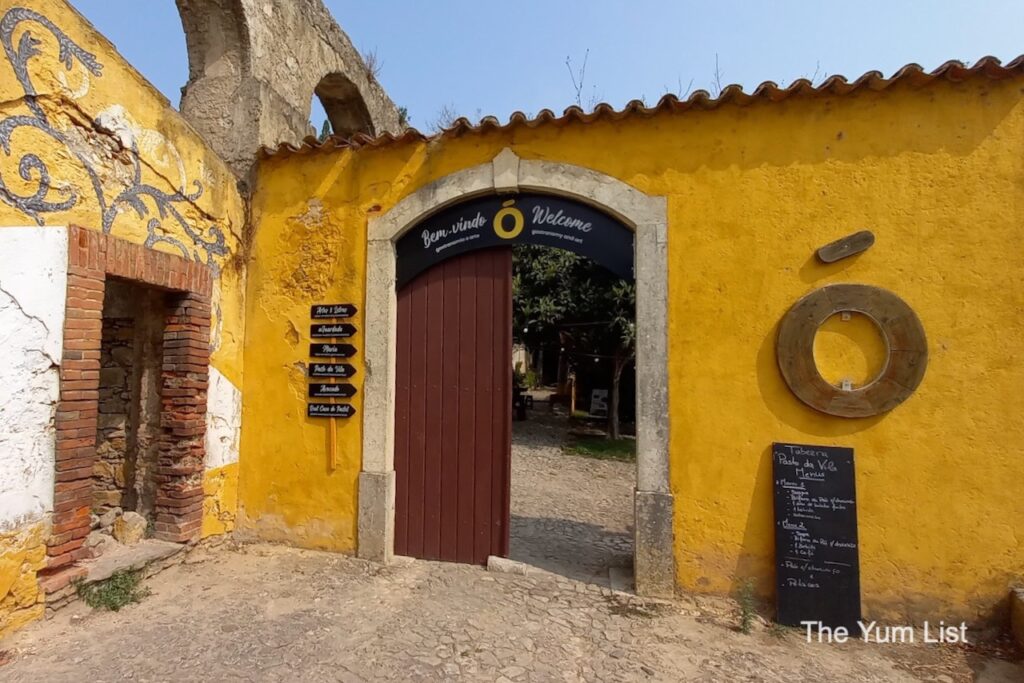
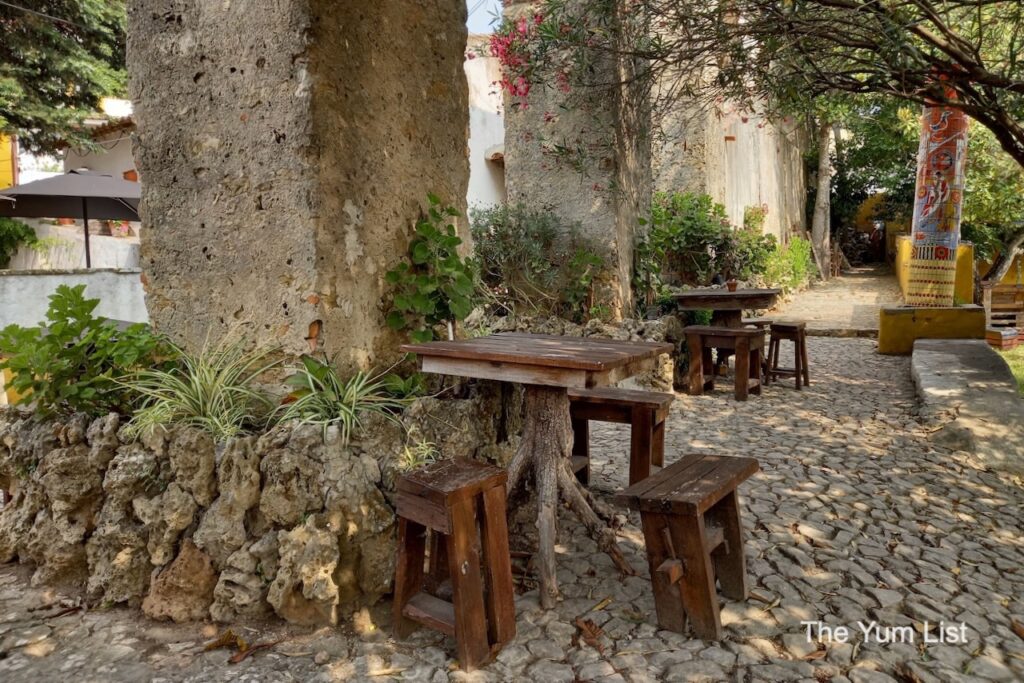
One of the most distinctive features of Óbidos is its well-preserved city walls. These walls, which enclose the village, were built during the reign of King Fernando in the 14th century. They were constructed to fortify the town and protect it from invasions. Today, visitors can stroll along the walls and enjoy panoramic views of the surrounding countryside, gaining a sense of the village’s historical defensive importance.
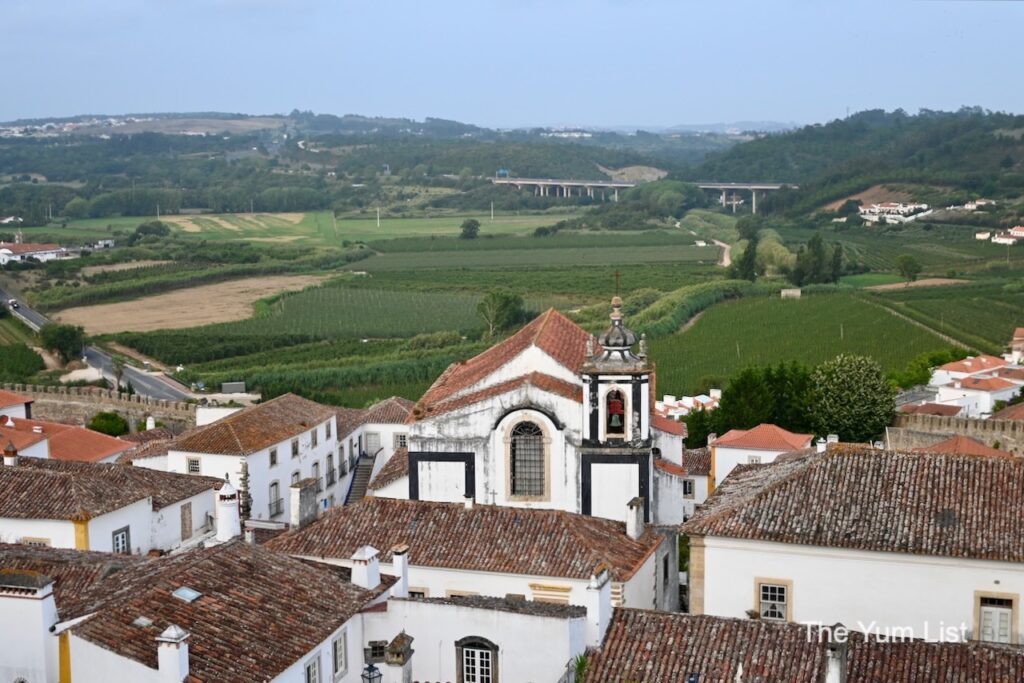
As we wander through the narrow cobblestone streets of Óbidos, we encounter an array of whitewashed houses adorned with colourful trims and flowers. The traditional architecture reflects the town’s medieval heritage. Along the main street, Rua Direita, there are a bunch of small shops selling local crafts and traditional Portuguese products. The village’s local economy heavily relies on tourism, and many businesses cater to visitors’ needs, offering traditional handicrafts, regional food, and souvenirs.
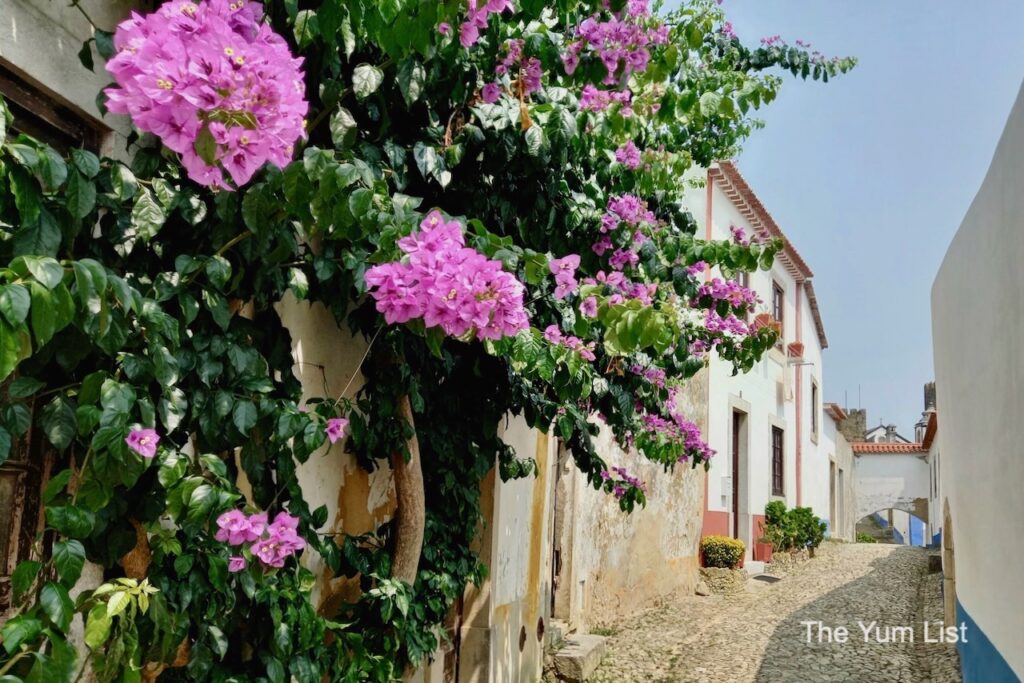

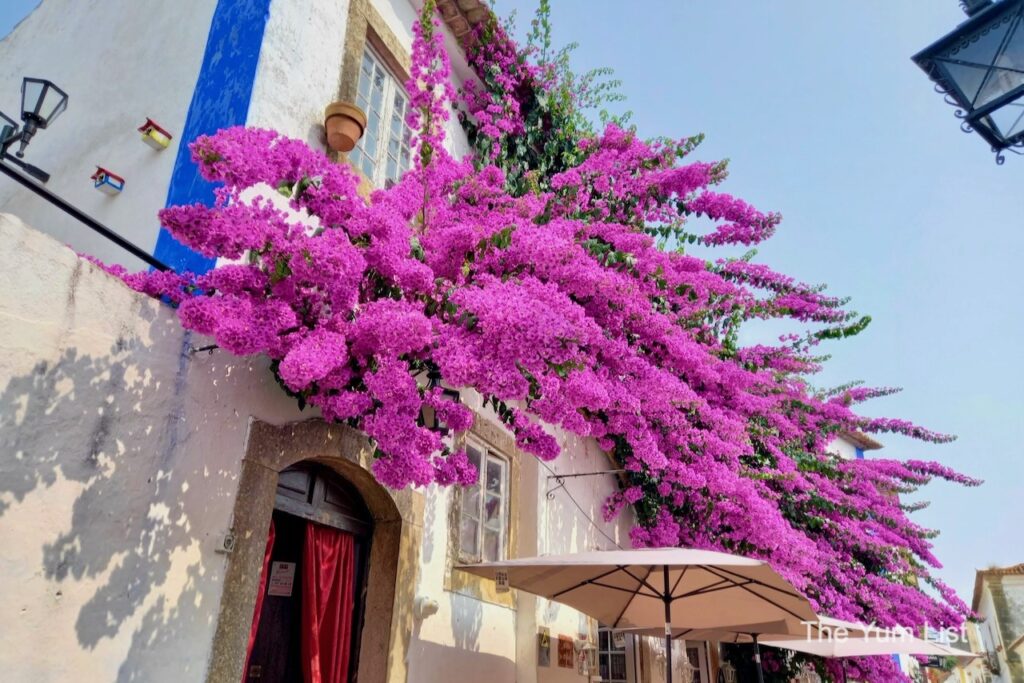

One of the most iconic landmarks is the Castle of Óbidos, which stands at the village’s highest point. This imposing medieval castle was converted into a luxurious hotel, maintaining its historical significance while providing a unique accommodation experience for visitors. Inside the castle walls, you can find a chapel and beautifully landscaped gardens, adding to the village’s charm.
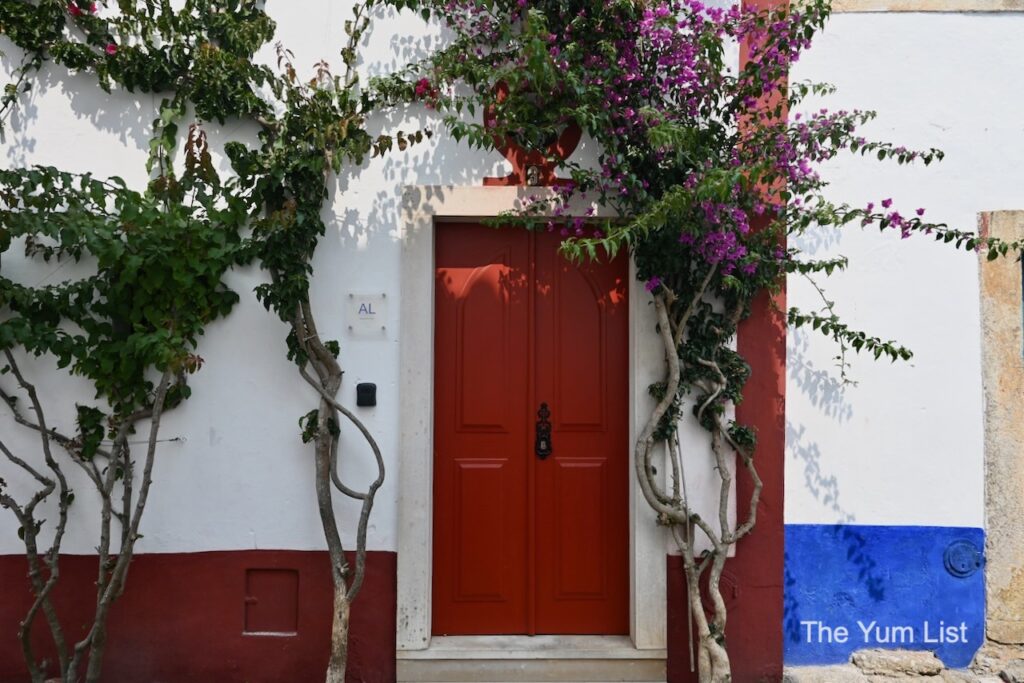
The history of Óbidos has been significantly influenced by religion. The village is home to the Church of Santa Maria, a remarkable example of medieval architecture. Built in the 12th century, the church showcases a mix of Romanesque and Gothic styles. Its interior features intricate tilework and religious art, offering visitors a glimpse into the religious fervour of the past. And it is only one of 13 churches within the town walls!
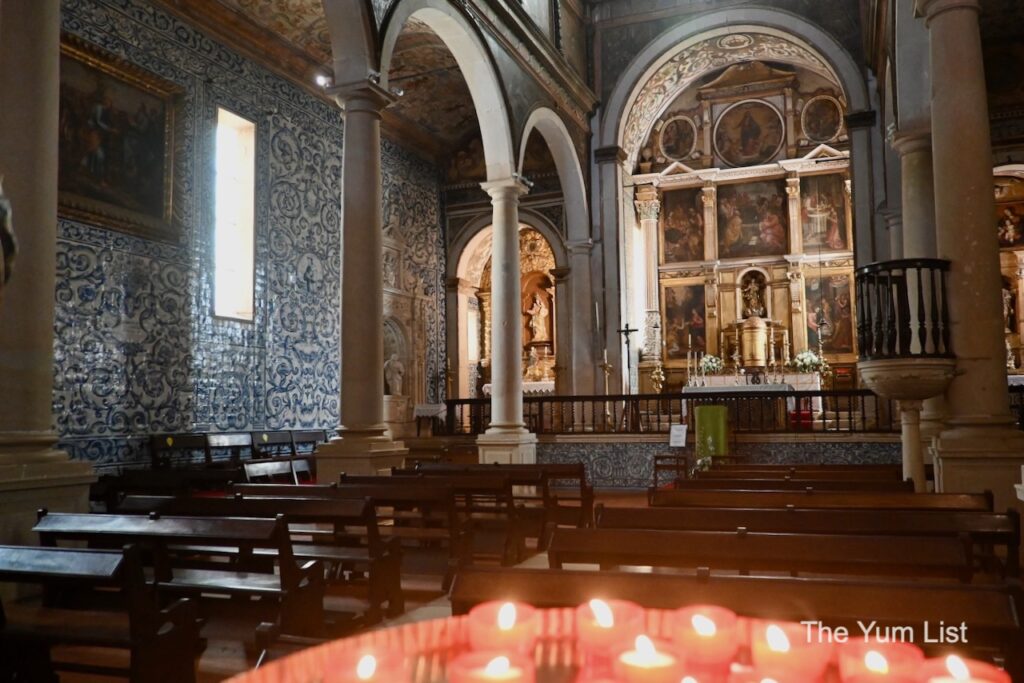
During our visit at the end of June, the town is preparing for the Óbidos Medieval Festival, an annual event attracting both locals and international tourists. During this festival, the village transforms into a medieval town, with inhabitants dressed in period costumes, reenacting historical events and showcasing traditional crafts. The event offers an incredible opportunity to fully immerse in Óbidos’s cultural legacy and experience medieval life. The town also hosts the Óbidos International Literature Festival, a yearly event since 2015 where literature lovers converge for events, workshops, readings, seminars, performances and much more! Keep your eye out for the ten bookshops within the town’s walls, often found in repurposed buildings –even one converted from an old church.
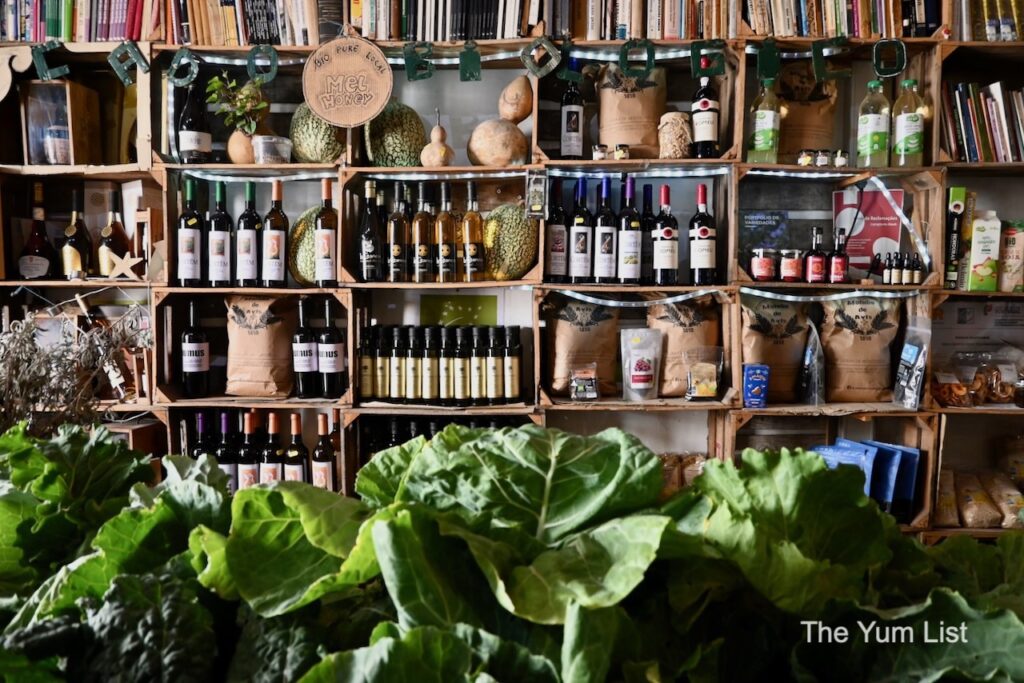
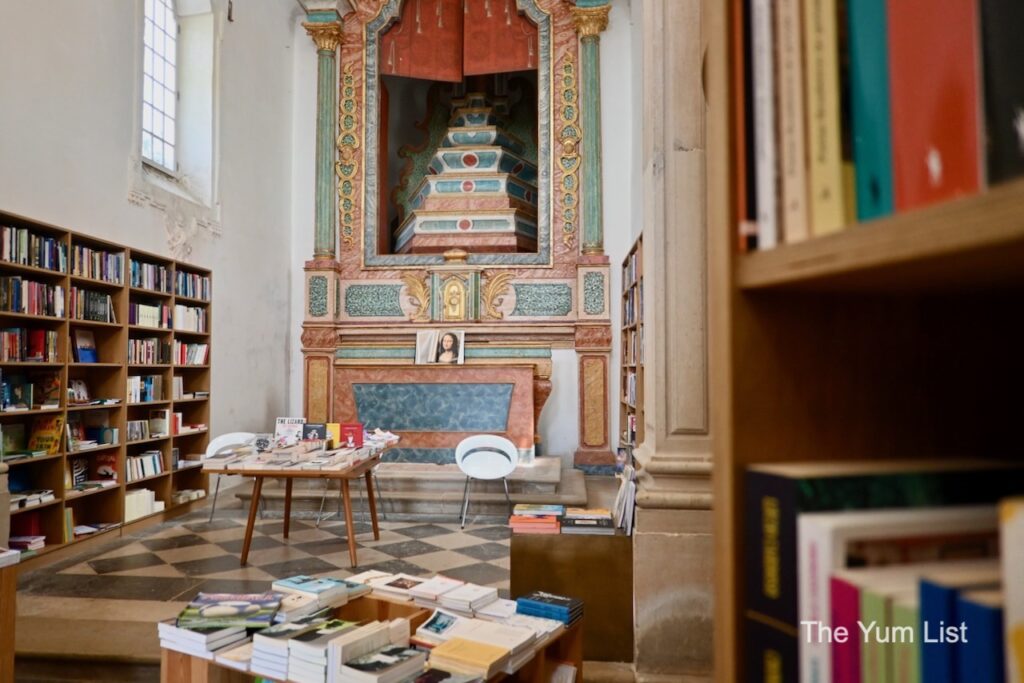
Óbidos is a well-preserved medieval village in Portugal that offers visitors a glimpse into the past. Exploring the narrow streets, visiting the castle, and attending the Medieval Festival are just a few experiences that make Óbidos a must-visit destination for history enthusiasts and cultural explorers, and a walking tour with West Side Stories is an excellent introduction.
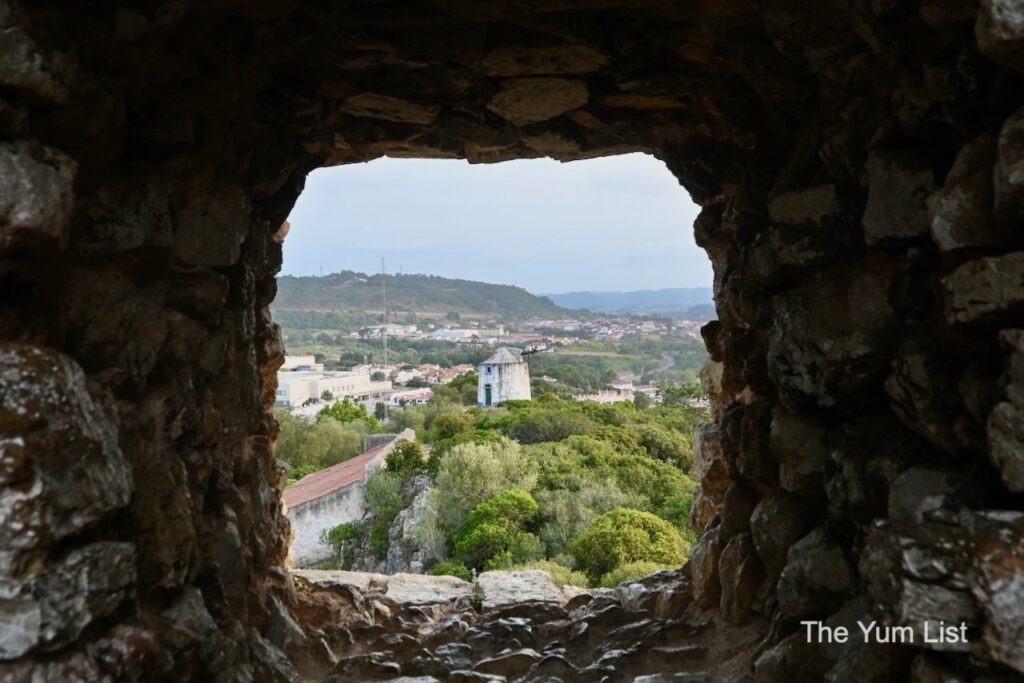
*We didn’t have time on this whirlwind visit. Still, we’ve heard that the company provides much more immersive tours involving drama and wine, where guests become one of history’s characters as they explore the city and then indulge in local wine (some very good drops) once their “work” is done.
www.westsidestories.pt/en
Find more recommendations for gourmet travel to Portugal here and stay up-to-date with the happenings around the world here and here.

